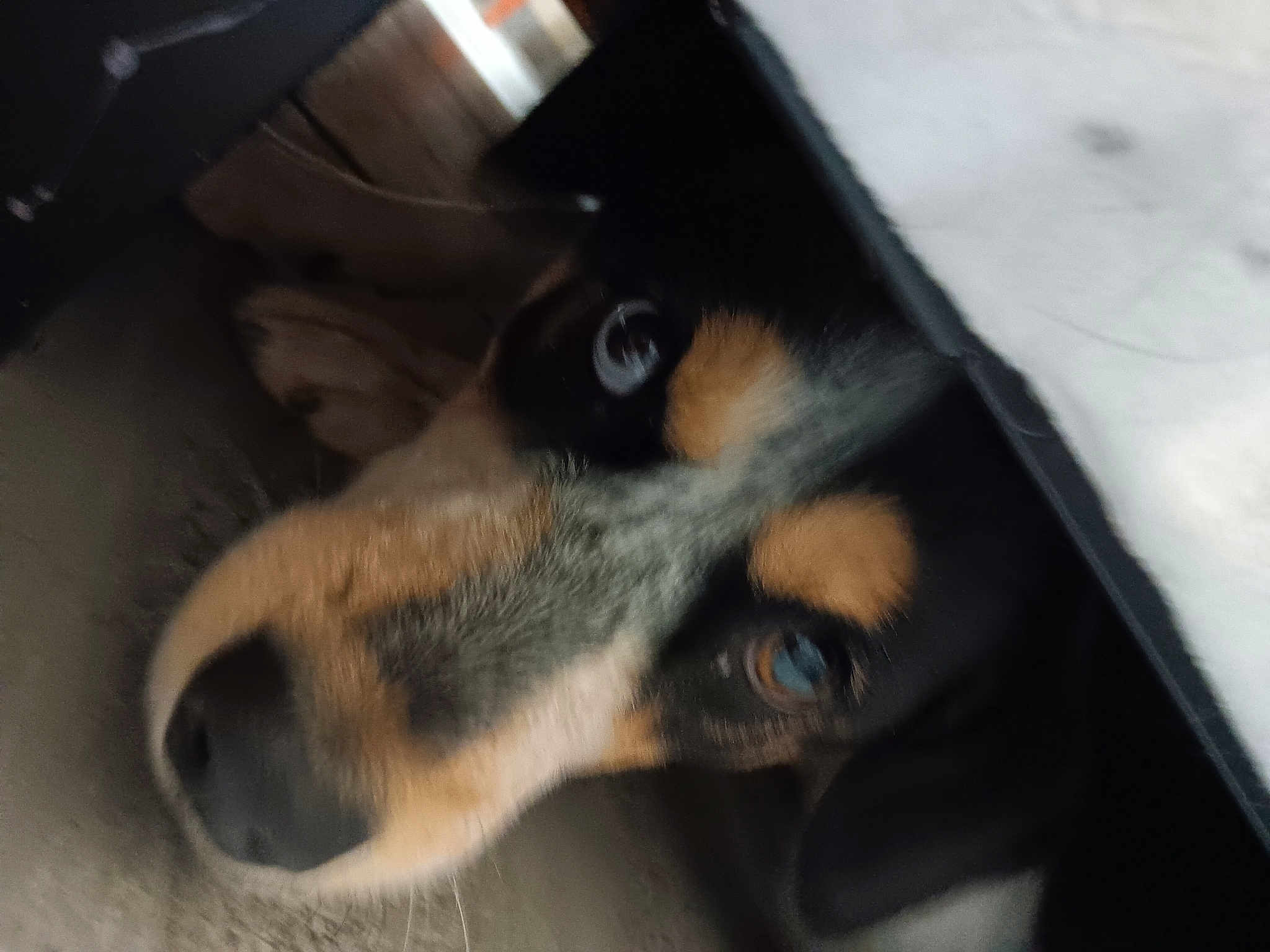"The Icelandic Sheepdog, often dubbed the 'Viking Dog,' carries a rich history dating back to the 9th century when it accompanied Norse settlers to Iceland. The breed's resilience and versatility have made it an integral part of Icelandic culture, valued for its herding skills and companionship."
Personality and Behavior of the Icelandic Sheepdog
One of the most striking characteristics of the Icelandic Sheepdog is its amiable and happy-go-lucky nature. This breed is known for being exceptionally friendly, not just with family members but also with strangers. Their welcoming disposition makes them excellent companions for families with children and other pets. They are lively, energetic, and have a high drive to work, staying true to their herding heritage.
These dogs are incredibly smart and have a natural ability to read human emotions, which makes them very attuned to their owners' needs. Icelandic Sheepdogs often exhibit a keen sense of excitement for any activity involving their human family, whether it's hiking, playing in the yard, or simply enjoying some cuddle time on the couch. This affectionate and enthusiastic demeanor keeps the household lively and entertaining.
Many owners appreciate their Icelandic Sheepdog's inquisitive and alert nature. They are vigilant without being overly aggressive, making them great watchdogs who will alert their family to any new developments in their environment. They're not prone to unnecessary barking but will certainly let you know if something unusual catches their attention.
Icelandic Sheepdogs possess an almost theatrical joy for life that is infectious to all around them. Their boundless energy and genuine love for activities ensure they are always in the middle of action, reinforcing their place as both family pets and active herders.
Meanings, History and Origins of the name Icelandic Sheepdog
The Icelandic Sheepdog’s name is intrinsically linked to its homeland. The breed descended from dogs brought to Iceland by Viking settlers, and their name reflects this rich heritage. The word 'Sheepdog' underscores their primary function, which has historically been to manage and work flocks of sheep across Iceland's rugged landscapes. Over the centuries, they have become a quintessential part of Iceland's agricultural life, embodying ruggedness and friendliness.
The breed’s history stretches back over a thousand years, with evidence showing that these dogs have assisted farmers and shepherds throughout Iceland’s challenging environment. Their ability to adapt to severe weather and navigate the rocky terrain has made them invaluable. It’s no surprise that the Icelandic Sheepdog is often considered a national treasure in Iceland.
The name also conveys the breed’s working dog status and robust nature. They were essential for safeguarding livestock and managing herds, underscoring their loyalty, intelligence, and endurance. Often seen as a dog of the people, their name carries a legacy of companionship and utility that's deeply woven into Icelandic culture.
Popularity of the Icelandic Sheepdog
Despite being relatively rare compared to other breeds, the Icelandic Sheepdog has a growing following among dog enthusiasts worldwide. Their cheerful disposition and adaptability make them a rising star, especially among those who appreciate breeds with historical significance and utility.
In English-speaking countries, the popularity of the Icelandic Sheepdog has been on a steady increase. This can be attributed to their charming personalities and adaptable nature, making them well-suited for diverse lifestyles, from rural farms to urban apartments. Their friendly demeanor and smaller size (compared to other herding breeds) make them appealing to a broad spectrum of dog lovers.
The breed's standing in other parts of the world, especially within Europe, remains strong, with particular popularity in Nordic countries. These dogs are celebrated in dog shows and events, often praised for their agility, herding capabilities, and obedience. Countries such as Germany and the UK have dedicated clubs and associations that actively promote the Icelandic Sheepdog.
The official recognition by kennel clubs and breed organizations worldwide further boosts their profile. As more people become aware of this charming and versatile breed, it's likely that their popularity will continue to grow, reflecting a broader appreciation for these "Viking Dogs."
Health and Care of the Icelandic Sheepdog
The Icelandic Sheepdog is generally healthy, but like all breeds, they may be prone to specific health conditions. Potential owners should be aware of these to ensure their pets remain in optimal health. Common issues include hip dysplasia, patellar luxation, and eye conditions such as cataracts. Regular health screenings and veterinary check-ups are vital for early detection and management of these issues.
Dietary needs for the Icelandic Sheepdog are typical for medium-sized, active breeds. High-quality dog food that balances proteins, fats, and carbohydrates will sustain their energy levels and support their overall health. Owners should avoid overfeeding, as Icelandic Sheepdogs can become overweight if their diet is not carefully monitored in conjunction with their activity levels.
Grooming needs are moderate but necessary to maintain their double coat, which provides insulation against cold weather and repels dirt. Regular brushing will help manage shedding, which can be more frequent during seasonal changes. Bathing should be occasional, as excessive washing can strip the coat of its natural oils. Regular ear checks, nail trims, and dental care should also be part of their routine to prevent infections and maintain health.
Training and Education of the Icelandic Sheepdog
Training an Icelandic Sheepdog can be a rewarding experience, thanks to their intelligence and eagerness to please. Positive reinforcement methods, including treats, praise, and play, work best with this breed. They respond well to training that challenges their minds and keeps them engaged.
Early socialization is crucial, given their alert and sometimes cautious nature. Introducing them to various environments, people, and other animals at a young age will help them grow into well-adjusted adults. Icelandic Sheepdogs are naturally sociable but can develop unwanted behaviors if not properly socialized early on.
Basic obedience training should start as soon as possible. Commands such as sit, stay, and come are fundamental for any dog, but especially important for a herding breed that thrives on mental stimulation. Advanced training, agility exercises, and herding activities can provide the physical and mental engagement that the Icelandic Sheepdog craves.
Common challenges in training might include managing their high energy levels and instinctual herding behavior, which could lead to chasing or nipping. Consistent, patient, and firm training can help mitigate these tendencies and harness their energies positively.
Choosing the right dog involves considering various factors, including temperament, living environment, and the amount of time you can dedicate to training and exercise. For those who can match the Icelandic Sheepdog’s energy and affection, this breed promises a loyal and joyful companionship.
The Icelandic Sheepdog holds a unique place in the hearts of dog lovers on Pageant Dog, constantly impressing in our photo contests with their exuberance and charm. Their historical significance, combined with their delightful personality, makes them an excellent choice for anyone looking for a devoted and lively pet. With proper care, training, and love, the Icelandic Sheepdog can be a treasured family member and a steadfast companion.






